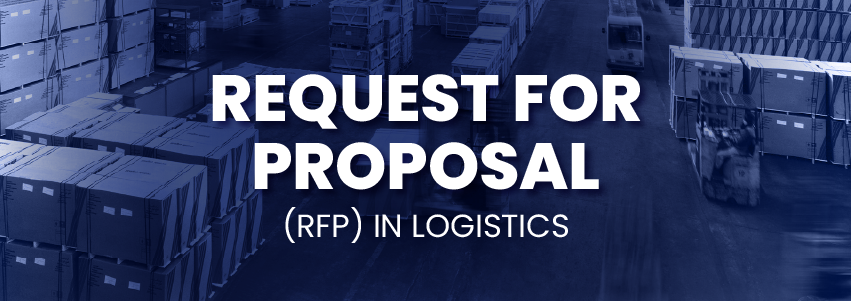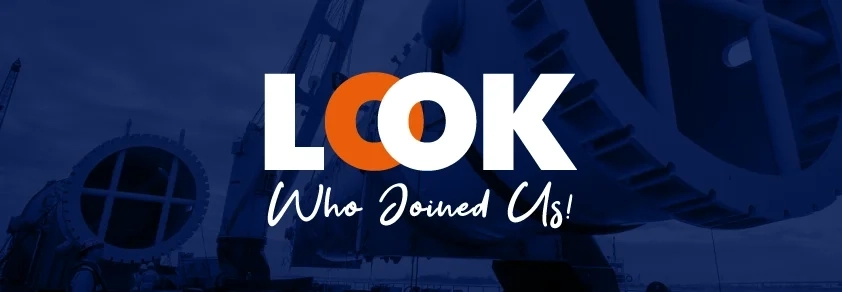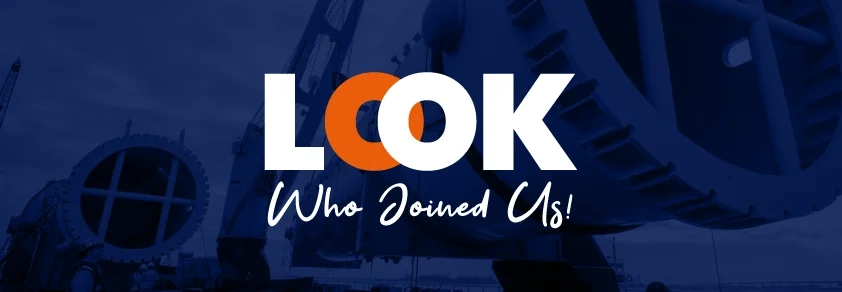What is a Request for Proposal (RFP) in Logistics?
Table of Contents
A Request for Proposal (RFP) functions as an official document which organizations use to invite potential suppliers and service providers to submit their proposals. The logistics industry uses Request for Proposals to identify suitable partners who can deliver shipping and warehousing and transportation and additional logistics services. Companies use RFPs to describe their particular requirements so potential providers can create detailed proposals showing their approach to fulfilling these needs.
The meaning of request for proposal is straightforward: it’s an invitation for suppliers to submit their detailed plans and costs for providing specific services. The logistics request for proposal definition shows how companies compete to find optimal transportation and logistics solutions.
RFPs frequently appear in project management and supply chain settings because companies need to work with multiple vendors, including international shipping companies, to handle different logistics and transportation aspects.
What Is a Freight and Logistics RFP?
Logistics companies use RFP documents to describe their requirements for transportation services and warehousing needs and freight forwarding operations and other logistics services. The RFP in supply chain management enables organizations to locate qualified partners who deliver the best value for their logistics needs.
A company would release an RFP for freight services to identify shipping partners who can handle both domestic and international transportation of goods. The purpose of request for proposal to identify the most suitable carrier or third-party logistics provider which fulfills the particular requirements of the company.
RFP vs. RFI vs. RFQ: What’s the Difference?
The procurement process includes three essential tools: RFP (Request for Proposal), RFI (Request for Information), and RFQ (Request for Quotation), which serve different functions.
The RFP (Request for Proposal) requires vendors to present detailed proposals which explain their approach to fulfilling requirements through cost breakdowns and execution plans.
The RFI (Request for Information) serves as an initial market inquiry to obtain general details about available services and solutions.
The RFQ (Request for Quotation) requires vendors to provide pricing information for specific requirements or quantities.
The main difference between an RFP in logistics projects and an RFQ lies in their focus, where RFPs assess vendor capabilities for complex projects and RFQs concentrate on obtaining pricing details for well-defined goods or services.
Request for Proposal vs Request for Qualifications
The main distinction between a request for proposal and a request for qualifications (RFQ) exists in the level of required detail. The RFP demands a complete proposal which includes detailed plans and methodologies and costs, but a Request for Qualifications seeks only vendor capabilities and experience records without needing a full proposal.
A company would ask for a complete proposal through project management request for proposal to understand the vendor logistics process handling but would only need proof of experience with specific freight or logistics services through an RFQ.
Difference Between Request for Proposal and Request for Quotation
The main distinction between RFP and RFQ exists in the level of requested information. The RFP process targets complex custom services including logistics management because buyers need both pricing information and detailed delivery plans. The RFQ process serves buyers who already understand their requirements because they need only price quotations for specific goods or services.
What is the RFP Process?
The RFP process in logistics follows a structured procedure to ensure that the best suppliers are chosen to meet the company’s needs. It typically involves the following steps:
1. Issuing the RFP: A company creates and sends out the request for proposal document to selected vendors.
2. Vendor Responses: Potential vendors submit their proposals, including pricing, timeline, and methods for completing the project.
3. Evaluation: The company evaluates the proposals based on criteria such as cost, service capabilities, and experience.
4. Negotiation: The company negotiates terms with the chosen vendor(s) before finalizing the contract.
5. Contract Award: The winning vendor is selected, and the logistics project is set in motion.
More Tips for Freight RFPs
The process of creating a freight RFP requires precise definition of requirements, which must include both delivery schedules and performance targets and service standards. The vendors need to understand your logistics operations in detail so they can create detailed competitive proposals. RFP examples serve as reference materials to help you create an RFP document that includes all required elements
What’s Included in a Freight RFP?
A well-written freight RFP includes several key components to ensure vendors understand the project requirements fully. Here’s what you can expect to find in a request for proposal document:
- Company Overview: A brief introduction to the company and the scope of the project.
- Scope of Work: Detailed information about the logistics services required, including transportation, warehousing, or freight forwarding.
- Timeline: Specific deadlines for delivery and milestones.
- Pricing Structure: A request for pricing information, including detailed cost breakdowns.
- Performance Expectations: Key performance indicators (KPIs) for the vendor’s performance.
- Legal and Compliance Requirements: Any industry-specific regulations or laws that the vendor must adhere to.
Common KPIs Requested in Freight RFPs
- Delivery Time: How quickly the vendor can fulfill shipping requests.
- Cost Efficiency: The cost savings or efficiency improvements the vendor can provide.
- Reliability: The vendor’s track record in meeting deadlines and delivering goods safely.
- Customer Service: The quality of communication and support during the transportation process.
Request for Proposal Template
A request for proposal template serves as an essential resource for businesses that need to create RFPs for logistics services. The standard template structure includes predefined sections which cover company details and project requirements and evaluation standards and pricing requirements. The use of templates helps companies maintain complete proposal content while providing vendors with all required details to create their proposals.
Request for Proposal with Examples
Reviewing RFP examples helps you learn how to organize your request and what details to add. The examples differ according to the logistics services you require such as international shipping companies or local freight transport or warehousing services. An RFP for logistics projects would typically contain the following elements:
Company Information:
- Company Name: XYZ Logistics Solutions
- Contact Person: John Doe, Procurement Manager
- Contact Information: johndoe@xyzlogistics.com, +1 234 567 890
Scope of Work:
- Transport of goods from New York, USA to Melbourne, Australia
- Provide ocean freight and insurance for cargo
- Ensure delivery within 30 days from the date of shipment
Evaluation Criteria:
- Cost efficiency (weight-based pricing)
- On-time delivery performance
- Insurance and liability coverage
Pricing Guidelines:
- Provide a detailed breakdown of pricing for ocean freight and insurance
- Include any additional charges for expedited shipping or customs clearance
Timeline:
- Submission Deadline: March 15, 2024
- Proposal Review Period: March 16–20, 2024
- Award Notification: March 22, 2024
- Service Start Date: April 1, 2024
Legal and Compliance Requirements:
- Adherence to international shipping regulations
- Proof of insurance and required licenses
The example provides companies with a clear understanding of how to build their RFP document while ensuring all required elements are present. The RFP examples serve as adaptable tools for any project because they can be modified to meet various logistics requirements.
OPCA: Enhancing Global Trade through RFPs and Freight Forwarders
The Overseas Project Cargo Association (OPCA) provides its members with a connection to international shipping companies and different resources to help them effectively manage freight RFPs. Members of the OPCA network can find reliable partners and exchange insights to achieve the best possible logistics solutions through their RFP processes.
For more information on freight forwarders and how OPCA can assist with your shipping needs, visit the freight forwarders directory.
_logo.webp)



